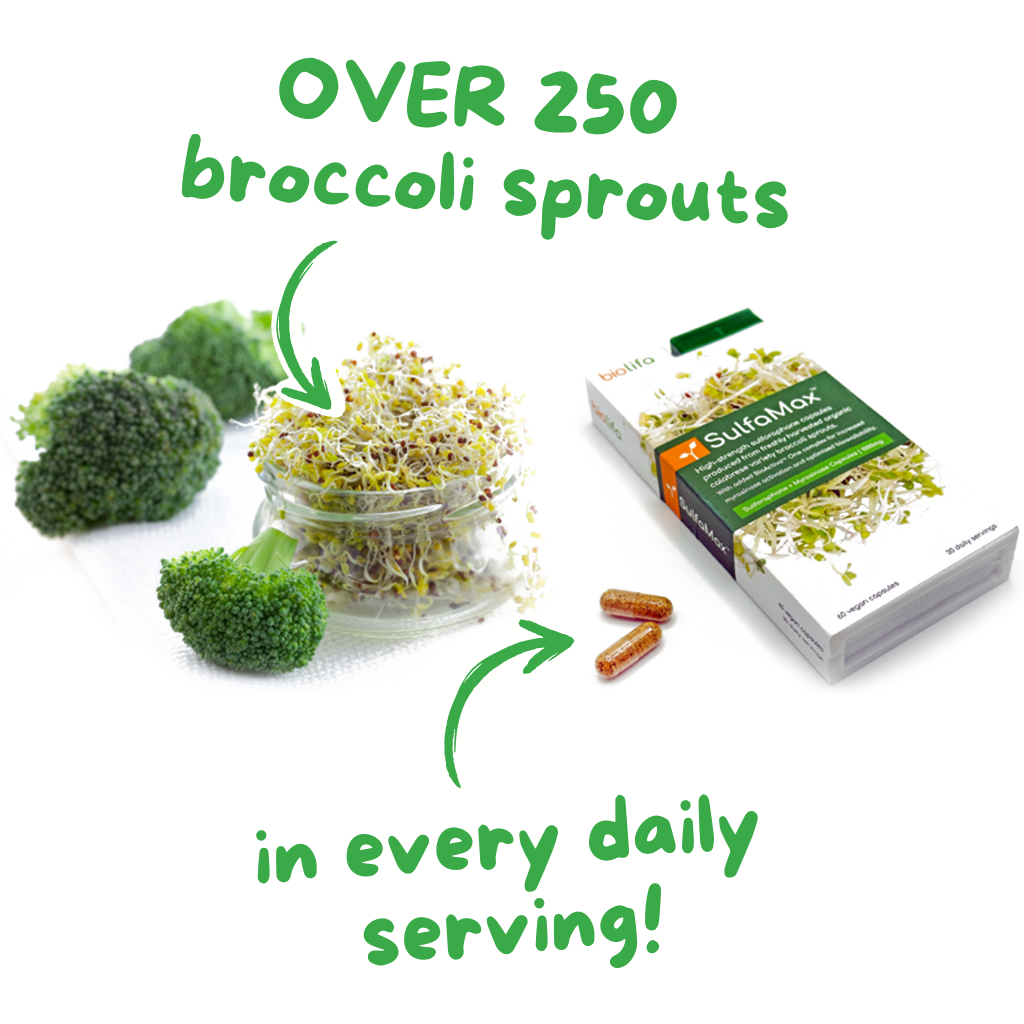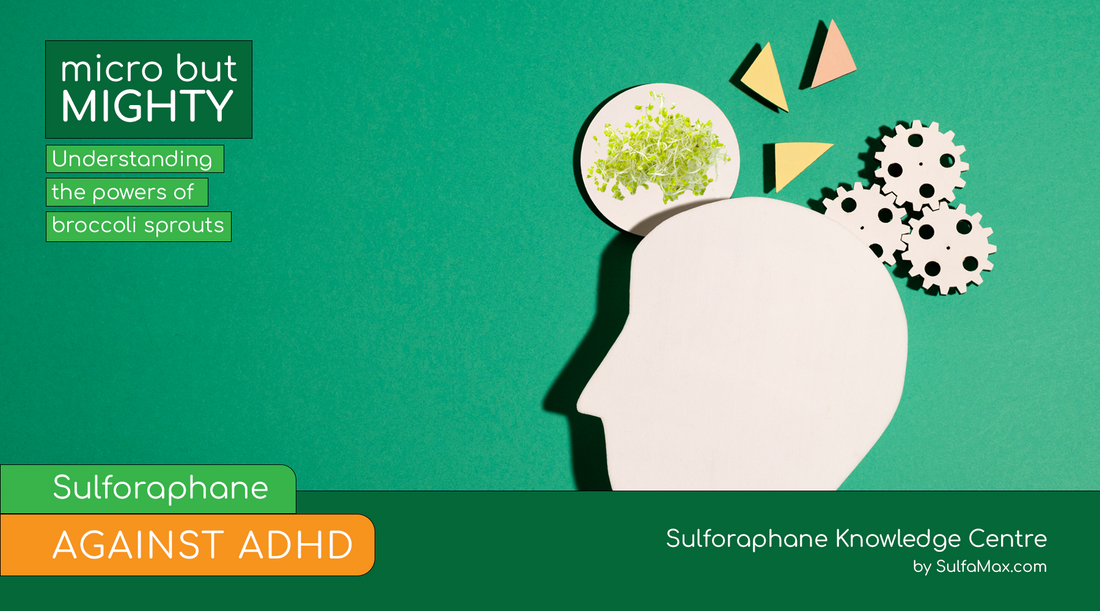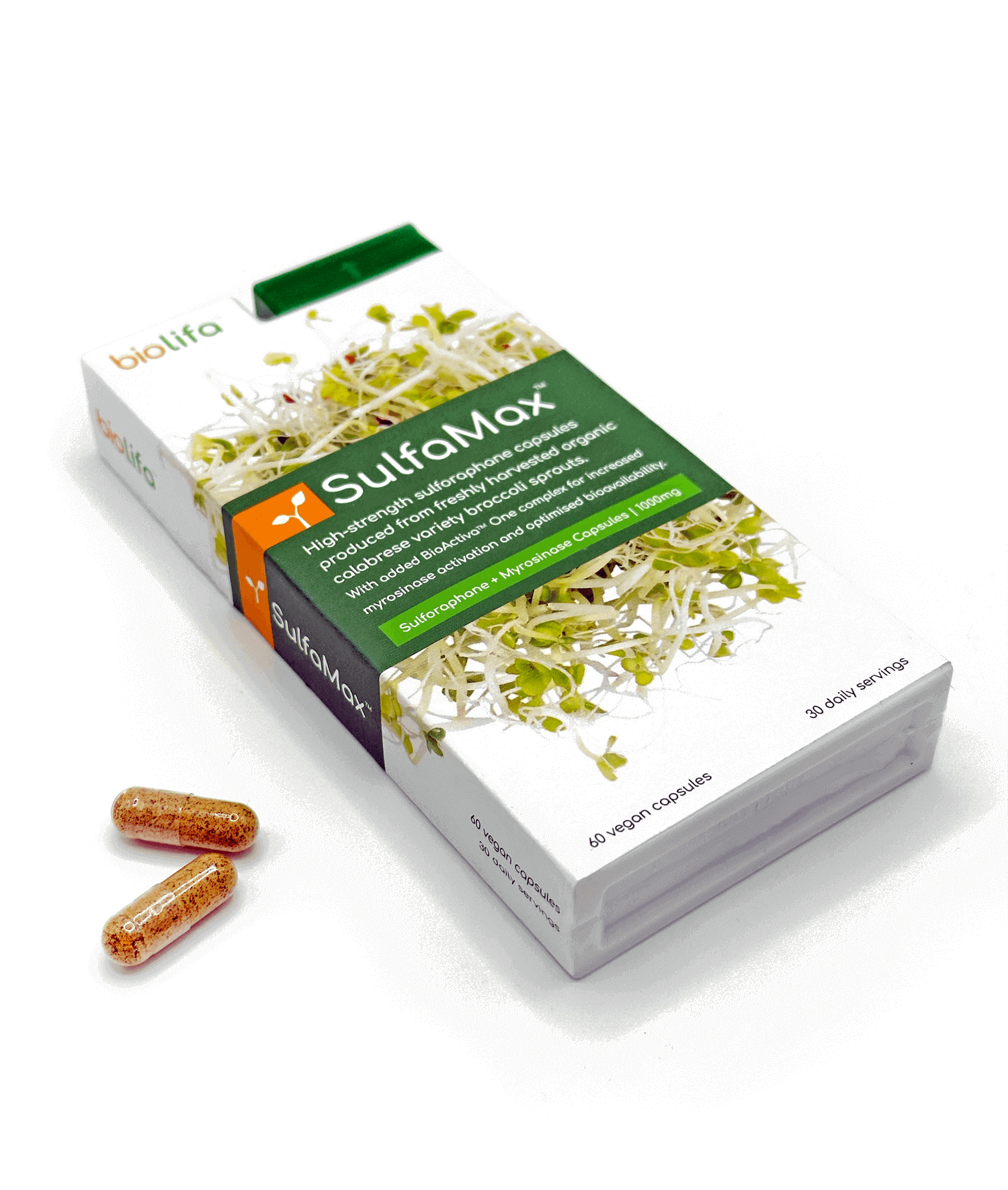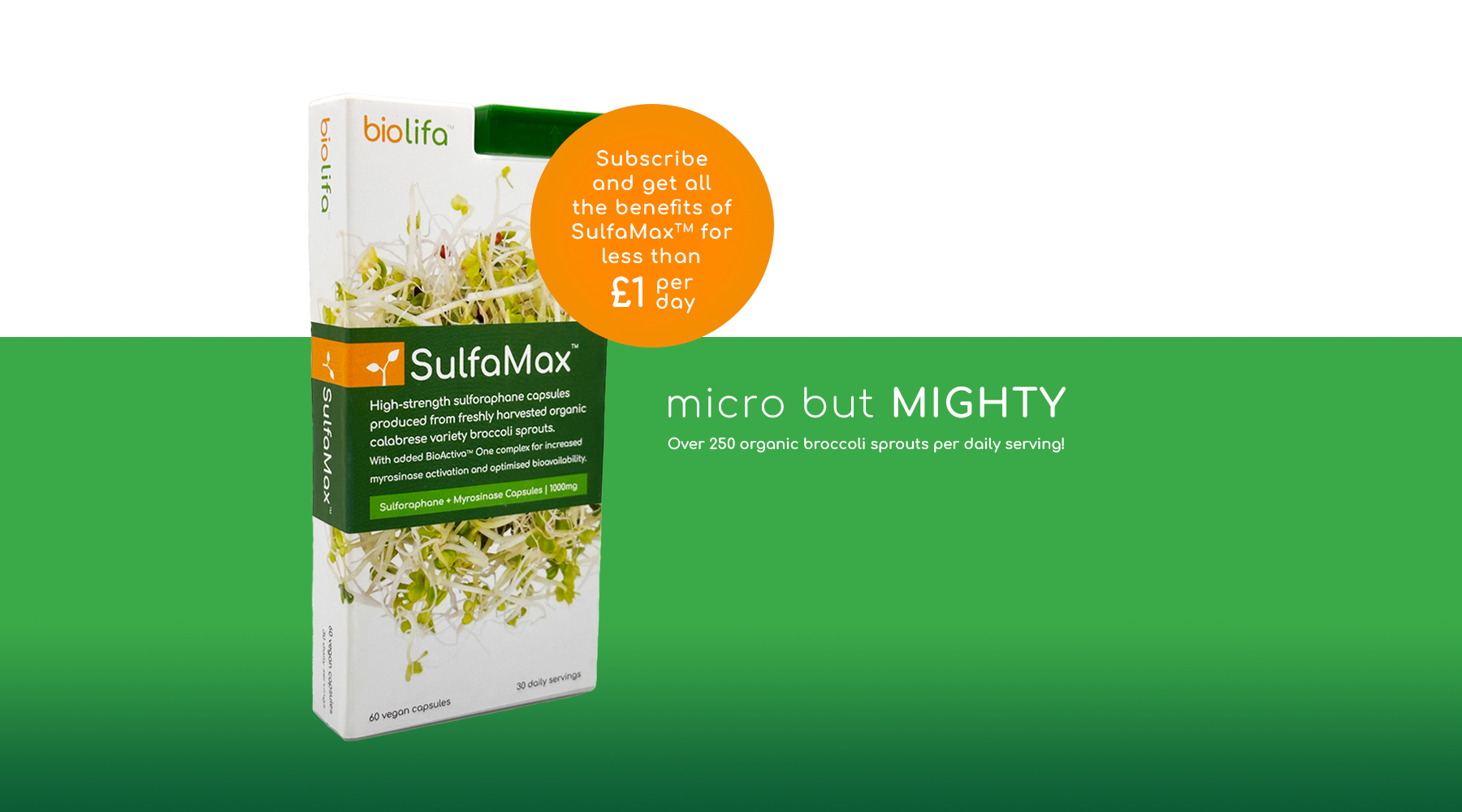Attention deficit hyperactivity disorder (ADHD) is a neurodevelopmental disorder characterised by symptoms such as inattention, hyperactivity, and impulsivity. It affects both children and adults, and it can have a significant impact on academic, occupational, and social functioning. While medication and behavioural therapy are the primary treatment options for ADHD, there is growing interest in the use of natural supplements, such as sulforaphane, as an alternative or complementary treatment option. In this article, we will explore the potential benefits of sulforaphane for individuals with ADHD.
What is sulforaphane?
Sulforaphane is a naturally occurring compound found in cruciferous vegetables such as broccoli, Brussels sprouts, and kale. It is a member of the isothiocyanate family, which are sulfur-containing compounds that have been shown to have a variety of health benefits. Sulforaphane is formed when the enzyme myrosinase interacts with glucoraphanin, a glucosinolate found in cruciferous vegetables, when the vegetables are chewed or chopped.
How does sulforaphane work?
Sulforaphane has been shown to have a variety of biological effects, including antioxidant and anti-inflammatory properties. It also activates a protein called Nrf2, which is responsible for regulating the body's antioxidant response. Nrf2 is thought to play a role in protecting the brain from oxidative stress and inflammation, which are believed to contribute to the development and progression of ADHD.
Studies on sulforaphane and ADHD
There is a growing body of research exploring the potential benefits of sulforaphane for individuals with ADHD. In a double-blind, placebo-controlled study, 50 adolescent males with ADHD were given either a placebo or sulforaphane-rich broccoli sprout extract for 12 weeks. The results showed that the group receiving the sulforaphane extract had significant improvements in ADHD symptoms compared to the placebo group. Specifically, they showed improvements in inattention, hyperactivity, and impulsivity.
Another study conducted by researchers at the Massachusetts General Hospital found that sulforaphane may be particularly effective for individuals with certain genetic variants. The study found that individuals with a certain variation in the glutathione S-transferase (GST) gene, which is involved in the detoxification of oxidative stress, had greater improvements in ADHD symptoms when given sulforaphane.
In addition to these clinical studies, there have been several animal studies exploring the effects of sulforaphane on ADHD-like symptoms. One study found that sulforaphane treatment improved hyperactivity and learning deficits in rats with ADHD-like symptoms. Another study found that sulforaphane improved cognitive function and decreased impulsivity in a mouse model of ADHD.
Potential mechanisms of action
While the exact mechanisms by which sulforaphane may improve ADHD symptoms are not yet fully understood, there are several potential mechanisms that have been proposed. One possibility is that sulforaphane's anti-inflammatory properties may help reduce inflammation in the brain, which is believed to contribute to the development of ADHD.
Sulforaphane's ability to activate the Nrf2 pathway is also believed to play a role in its potential benefits for ADHD. The Nrf2 pathway is involved in the body's antioxidant response, and it has been shown to protect the brain from oxidative stress and inflammation.
Another possible mechanism is that sulforaphane may affect levels of neurotransmitters in the brain, such as dopamine and serotonin, which are involved in regulating mood, attention, and behaviour. Some research suggests that sulforaphane may increase dopamine levels in the brain, which could improve symptoms of ADHD.
In conclusion, sulforaphane, a natural compound found in cruciferous vegetables, has been shown to have potential in the treatment of ADHD. Research suggests that sulforaphane can modulate neurotransmitter activity, reduce oxidative stress and inflammation, and improve behavioural symptoms of ADHD. However, more studies are needed to fully understand the mechanisms behind these effects and to determine the most effective doses and forms of sulforaphane for treating ADHD.
It is important to note that while sulforaphane shows promise in treating ADHD, it should not be considered a replacement for traditional medications and therapies. Individuals with ADHD should always consult with a healthcare professional before making any changes to their treatment plan.
In addition to its potential benefits for ADHD, sulforaphane has also been shown to have numerous other health benefits, such as reducing inflammation, improving heart health, and promoting healthy brain function. Incorporating more cruciferous vegetables into your diet, such as broccoli, cauliflower, and kale, can be a simple and tasty way to increase your intake of sulforaphane and reap these health benefits.
Overall, sulforaphane is a promising natural compound that may hold the key to managing symptoms of ADHD and improving overall health. With ongoing research and clinical trials, we may soon have a better understanding of the full potential of this powerful compound.







